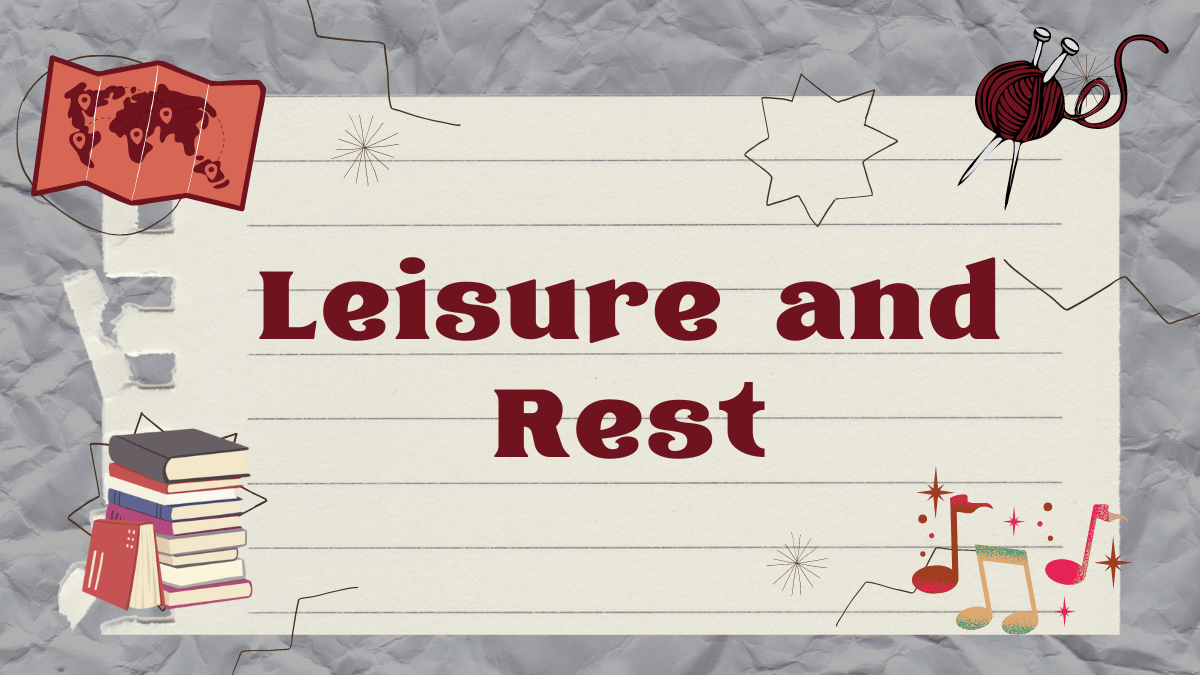Rest and Leisure

Leisure attends to our humanity. That there’s life beyond work. “Leisure requires an absence of rushing, tranquillity, an end to hurrying, a letting go”. writes Robinson and Godbey in their book Time for Life. If work denotes, speed and efficiency, leisure then is the opposite. It necessitates an appreciation of staying still. There’s a paradox to this that is interesting to me. That, whenever we experience something enjoyable, say reading a book or watching a film, time becomes faster but only we because these activities temporarily suspend the preoccupation of rushing as proven by our intense engagement with it.

If leisure is free time, hobbies are what we do during leisure. Whether it’s reading, watching films, birdwatching, knitting, — the main feature that characterizes hobbies is that it gives pleasure, and it’s enjoyable.
Hobbies

However, in his article In Praise of Mediocrity, Tim Wu wrote about the debilitating effects of the ‘pursuit of excellence’ to the concept of hobby. However, Wu contextualizes our current perception of hobbies and why it has become paralyzing to explore them because people are 1) afraid of being bad at them, 2) intimidated by expectations, 3) hobbies have become too serious, 4) too demanding, 5) too much an occasion to be anxious about whether you are the person you claim to be.
There’s a particular insight to this that Wu is cognizant about to which sometimes I find myself thinking. That these fears are caused by the hallmarks “of intensely public performative age — that we must actually be skilled at what we do in our free time”. There are, of course, multiple viewpoints to think about this. The insidious assault of capitalism on the personal, converting free time to capital, the imperative of social media to constantly accrue mileage, to not care about what other people think, or simply not post almost everything online.
The perpetual quest for free time

Leisure denotes an appreciation of stasis, the pleasure of staying still without a rush. But, coupled with the onslaught of the attention economy and endless imperatives to make ends meet and survive, leisure and consequently hobbies, for some, only become aspirations.
And even when we find the time to do so, there is a foreboding that is essentially a burden of whether or not this is going to be satisfying. That it must be gratifying and able to sustain our fickle attention up to the very end. The “art of seduction” Franco Berardi says, “takes too much time,” as Mark Fisher referred to in his book. There’s less engagement in things we love because we need rest and because a few moments later, we will again weather the harshness of work and the road. There’s always a rush, a speeding up to the demands of an increasingly globalized world. Time then becomes a perpetual quest.

I think about this whenever the discourse about passion or practicality arises. That there’s only so much time (and resources) to pursue one. This, in turn, makes time inherently political.
There’s value in rest and leisure that affirms our humanity. That we’re more than just cogs in the wheels. It’s hard to imagine a world like that but it’s not entirely impossible.
Drex Le Jaena is a writer currently based in Cavite.





